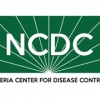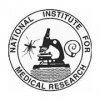Fri
12:00 am
Health News -03 March 2023
ERHABOR REAPPOINTED AS REGISTRAR/CEO OF MLSCN
The Honourable Minister of State for Health, Hon. Joseph Ekumankama, has conveyed the approval of President Muhammadu Buhari, GCFR to Dr. Tosan Erhabor, who has been reappointed as the Registrar/Chief Executive Officer of the Medical Laboratory Science Council of Nigeria (MLSCN), for a second and final term of four (4) Years with effect from June 9th, 2023 at a brief ceremony held on the 3rd of March, 2023 at the Minister’s Office.
While conveying the President’s approval to Dr. Erhabor, the Minister commended him for the gains and achievements recorded and charged him to continue to build and strive for excellence. “Your reappointment should be seen as a privilege to serve, let it not be seen as a gateway to slumber because it is your final tenure in office. Do not see it as an authority to deviate from what you have been doing. To whom much is given, much is expected. As the saying goes the reward for good work is more work so much is expected of you”.
Hon. Ekumankama went further to advise him to work in harmony and cordiality with all stakeholders regardless of the challenges faced. “Do not forget the enormous responsibilities and expectations of the office. I trust that you would justify the confidence reposed in you by the Ministry of Health and Mr. President by leaving your mark of progress at the Council”.
Dr. Erhabor who was grateful for his reappointment, assured the Minister that he would continue to improve on his previous achievements and what he met on ground. He stated that his reappointment would give him a new road map to sail in the next four years. “I will work earnestly to assure the Ministry and the Presidency that deemed it fit to reappoint me today that they did the right thing”.
The Medical Laboratory Science Council of Nigeria is a Federal Government Statutory Regulatory Agency established by Act 11 of 2003 to regulate the practice of Laboratory Science in Nigeria.
Blessing Efem
Signed: Ahmadu Chindaya (Deputy Director Media & Public Relations)
3rd March, 2023

Sat
12:00 am
Health News -14 January 2023
Buhari signs Mental Health Bill into Law
Decades after mental health regulatory reforms have languished in the legislative chambers with failed attempts at overhaul in 2003 and 2013; President Muhammadu Buhari has finally signed into law the Mental Health Bill harmonised by both Houses of Assembly in 2021.
The signing which seems to be a parting gift to Nigerians from the president is also the 1st Mental Health Act/ Law post Independence and will also replaced the Lunacy Act of 1958.
It could be recalled that in 2019, the mental health legislation was advanced, with the Senate passing it for second reading and holding public hearings in 2020.
On the 28th of November, 2022, the National Assembly passed the National Mental Health Bill, 2021, and forwarded it to President Buhari for consideration and assent last week, according to a memorandum by the Clerk to the National Assembly.
Confirming the signing to Vanguard, the President of the Association of Psychiatrists of Nigeria, APN, Prof Taiwo Obindo described it as a great relief. This is a victory for Mental Health Care and practice in this nation.
“A final culmination to over two decades of several efforts by the Association of Psychiatrists of Nigeria now has an Act/Law on Mental Health governance and we are now part of the global space with best global practice,” he stated.
Also, speaking, immediate past President of APN, Prof Taiwo Shielk expressed gratitude to God Almighty that the Mental Health Bill has been signed into law by The President and Commander In Chief of FRN. Congratulations to APN for our tenacity and advocacy for the voiceless.
“Our profound gratitude to Senator Dr. Ibrahim Oloriegbe, Senator Ahmad Abubakar, Dr. Ibrahim Gambari (COS), CBM International, Johnson & Johnson and all our partners. After several attempts, by His Grace we finally reached the milestone.
We pray that The Lord will reward all those who contributed to the success of this project.”
According to psychiatrists, the law will help replace the Lunacy Act of 1958, which practitioners condemn as outdated and inhumane.
Some provisions of the National Mental Health Bill include creating a Department of Mental Health Services in the Federal Ministry of Health and a Mental Health Fund.
It will help to establish human rights protections for those with mental health conditions, such as banning discrimination in housing, employment, medical, and other social services.
Improving care by guaranteeing those receiving treatments have the right to participate in formulating their medical plans and eliminating forced treatment, seclusion, and other methods of restraint in facilities, additionally, expanding community-based coverage.
The law will also address the way and manner mentally ill populations are to be catered for without stigma or discrimination and also form global best practices in enshrining the human right of the mentally ill, how care can be accessed, and outlawing chaining or other forms of coercion.
The law, among other benefits, will help in making access to care for the mentally ill easier and ensuring that the human rights of the mentally ill are enforced.
It will also help in regulating the activities of mental health practitioners and eliminates stigma and discrimination.
It will also help in addressing the issue of funding for mental health care in Nigeria.

Sat
12:00 am
Health News -21 January 2023
COVID-19: WHO meets with Chinese officials
A high-level meeting took place on 30 December between WHO and China about the current surge in COVID-19 cases, to seek further information on the situation, and to offer WHO's expertise and further support.
High-level officials from China's National Health Commission and the National Disease Control and Prevention Administration briefed WHO on China's evolving strategy and actions in the areas of epidemiology, monitoring of variants, vaccination, clinical care, communication and R&D.
WHO again asked for regular sharing of specific and real-time data on the epidemiological situation – including more genetic sequencing data, data on disease impact including hospitalizations, intensive care unit (ICU) admissions and deaths – and data on vaccinations delivered and vaccination status, especially in vulnerable people and those over 60 years old. WHO reiterated the importance of vaccination and boosters to protect against severe disease and death for people at higher risk.
WHO called on China to strengthen viral sequencing, clinical management and impact assessment, and expressed willingness to provide support on these areas, as well as on risk communications on vaccination to counter hesitancy. Chinese scientists are invited to engage more closely in WHO-led COVID-19 expert networks including the COVID-19 clinical management network. WHO has invited Chinese scientists to present detailed data on viral sequencing at a meeting of the Technical Advisory Group on SARS-CoV-2 Virus Evolution on 3 January.
WHO stressed the importance of monitoring and the timely publication of data to help China and the global community to formulate accurate risk assessments and to inform effective responses.

Sat
12:00 am
Health News -21 January 2023
Why are women less likely to survive cardiac arrest than men?
- Every year, about 6 million people globally die from sudden cardiac death caused by sudden cardiac arrest (SCA).
- Scientists have been conducting SCA-related research through the ESCAPE-NET project for the past 5 years.
- Project research found primary care visits rose sharply in the weeks before a person experiences SCA.
- Another study found that emergency medical services (EMS) professionals provide less rapid resuscitation care to women than men, leading to a lower survival rate from SCA.
Each year, about 6 million peopleTrusted Source around the world die from sudden cardiac deathTrusted Source caused by sudden cardiac arrest (SCA).
For the past 5 years, researchers from the European Heart Rhythm Association (EHRA) of the European Society of Cardiology (ESC), and the European Resuscitation Council (ERC) worked to improve SCA prevention and treatment through the ESCAPE-NET project, which concluded on January 1, 2023.
During this time, more than 100 studies connected to ESCAPE-NET research have been published in peer-reviewed journals.
One study published in the Journal of the American Heart AssociationTrusted Source in December 2021 found that primary careTrusted Source visits rose sharply the weeks before a person experiences SCA.
And another study, published in the European Heart Journal in May 2019, found that women receive less rapid resuscitation careTrusted Source from bystanders noticing they are having cardiac arrest than men, leading to a lower survival rate for women from SCA.
What is sudden cardiac arrest?
SCA occurs when an abnormal heart rhythm called an arrhythmia causes the heart’s electrical system to stop working properly. This causes the heart to unexpectedly stop beating.
SCA is different from a heart attack, where a coronary artery becomes blocked and blood is not able to reach the heart. However, a heart attack can cause SCATrusted Source and puts a person at higher risk for SCA.
Symptoms of SCA include:
- fainting or loss of consciousness
- dizziness
- racing or irregular heartbeat
- chest pain
- shortness of breath
- nausea.
Because SCA occurs so quickly, the first treatment for SCA is normally calling emergency medical services and administering cardiopulmonary resuscitation (CPR) until help arrives.
In the study from the Journal of the American Heart Association, ESCAPE-NET researchers found that people who experienced out-of-hospital cardiac arrest (OHCA) were more likely to have visited their primary care doctor in the weeks before having the cardiac arrest incident.
Scientists evaluated data from almost 29,000 patients from the Danish Cardiac Arrest RegistryTrusted Source who had OHCA. Upon analysis, researchers found the weekly percentages of patients meeting with their general care practitioner the year before the OHCA were constant.
However, 1 week before the OCHA, 42% of patients contacted their doctor. The research team also found that 2 weeks before experiencing an OHCA, 57.8% of patients contacted their doctor.
“Contrary to the general assumption, sudden cardiac arrest does not strike entirely unheralded, as ESCAPE-NET data have shown that patients attend primary care more often in the run-up to an arrest compared to usual,” explains Dr. Han Tan, ESCAPE-NET project leader, and cardiologist at the Amsterdam University Medical Centre AMC in the Netherlands.
“This insight may provide a lead for efforts to identify individuals at imminent risk of sudden cardiac arrest so that it can be prevented,” adds Dr. Tan.
Medical News Today also spoke with Dr. Alexandra Lajoie, a noninvasive cardiologist at Providence Saint John’s Health Center in Santa Monica, CA, about this study.
“I hope this research educates both patients and primary providers because the fact that they’re going and seeking care before the cardiac arrest, that’s really unfortunate because somebody saw them and still didn’t prevent this from happening,” she said.
“I think the majority of cardiac arrests are avoidable if the underlying cause is treated quickly prior to the arrest,” Dr. Lajoie continued. “I think that this shows that both patients and primary care providers need to take certain symptoms more seriouslyTrusted Source, be that chest pain, palpitations, lightheadedness, fainting, [or] shortness of breath.”
And Dr. Lajoie said these findings may also be due to limited access to care. “Patients may see their primary care doctor who is concerned about these symptoms appropriately and refers them to cardiology, but they can’t see a cardiologist or can’t have their echocardiogram or stress test due to limited access to care,” she detailed.
The ESCAPE-NET study published in the European Heart Journal found that women experiencing an OHCA have a lower chance of being resuscitated compared to men.
Researchers analyzed all emergency medical serviceTrusted Source (EMS) treated resuscitation attempts in one province of the Netherlands.
When looking at the data, scientists discovered women with OHCA were less likely than men to receive a resuscitation attempt by a bystander, even when it was obvious they were experiencing cardiac arrest.
Researchers also found women with OCHA who were resuscitated had lower odds of overall survival than men.
“This eye-opener must lead to public awareness campaigns aimed at narrowing the gender gap in sudden cardiac arrest management,” Dr. Tan says.
“A lot of that’s attributed to people being concerned about respect for female anatomy or just gender concerns,” Dr. Lajoie adds. “Someone who’s not well-trained may be concerned about doing deeper chest compressions on women who tend to have a smaller chest. And for effective CPR, you do need to give a good 2-inch deep chest compression.”
Dr. Lajoie also mentioned that while there are no known gender-based reasons why women might be at a higher risk for cardiac arrest, they are also more likely to delay going to get care initially with symptoms:
“[With] cardiac arrest, a lot of people think of it as something that comes out of the blue with no warning, which, unfortunately, sometimes that is the case. But oftentimes, patients do have symptoms leading up. Women are known to delay seeking careTrusted Source longer than men with symptoms, so [they are] less likely to get that care when they’re starting to have cardiac symptoms. And so, therefore, more likely to have the massive myocardial infarctionTrusted Source that causes cardiac arrest.”







